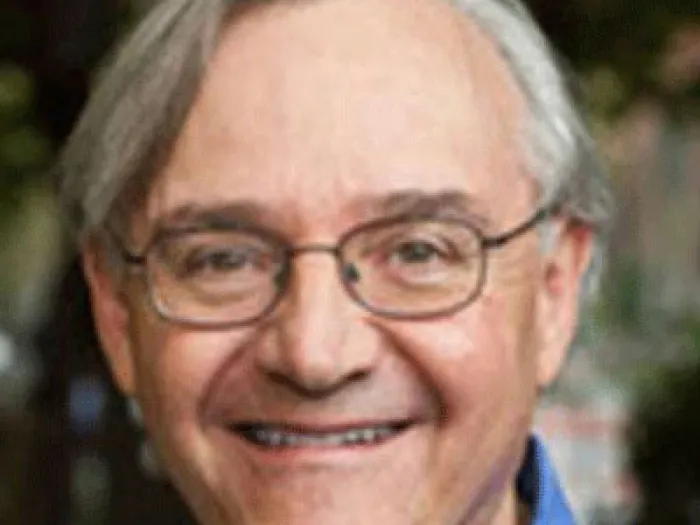Award-winning poet Tim Lilburn connects to the land through contemplative practice
Union Theological Seminary’s Insight Project hosts interdisciplinary conversation

May 30, 2023

“I didn’t know how to be where I was,” award-winning poet and essayist Dr. Tim Lilburn said in a public Zoom lecture recently held by Union Theological Seminary in New York City. The lecture was the fifth public forum of The Insight Project, which is described on its website as “a multi-year program series that seeks to put theology in conversation with a wide range of partners in the humanities, social sciences and the natural sciences.”
“At its core, The Insight Project seeks to redefine our understanding of theology not simply through the reformulation of doctrine, but through a reframing of the imagination,” said the host of the event, the Rev. Dr. John J. Thatamanil, Insight’s director and Professor of Theology and World Religions, before acknowledging the presence of the generous alumnus, Dr. Mary Coelho, who funds Insight.
According to its webpage, Coelho’s goal for Insight is to “deepen discourse around the ‘big questions’ and to provide space — particularly for students — to engage in dynamic, interdisciplinary conversations across curricular boundaries.”
Presenting on the topic ">“Faith, Contemplation and the Land,” Lilburn, a Fellow of the Royal Society of Canada and professor at the University of Victoria in British Columbia, is the first poet and professor of creative writing to participate. He is the author of 12 books of poetry and three collections of essays, including “Living in the World as if it Were Home,” “Going Home” and “The Larger Conversation: Contemplation and Place.”

Thatamanil described Lilburn’s meditations as recovering the ancient philosophers’ grasp of science as a spiritual pursuit. “It’s one of the intentions of this lecture series to cultivate in theology students and theologians more broadly an attention to the sciences,” noting that how Lilburn uses the word “physique” or “phusis” “is very much a part of the ancient tradition’s conception of physics in antiquity as understood to be part of the spiritual life.”
Before describing his journey to reconcile his spiritual and physical realities within the metaphysical and aesthetic traditions in which he trained, Lilburn described a moment of epiphany that transformed his faith, art and scholarship, turning his preoccupation with the transcendent into a desire to be rooted in the natural world and at home in the particularities of place.

Until his early 40s, Lilburn admitted “place was completely irrelevant” to his intellectual projects; rather he was “preoccupied by the structure of cognition and the pure desire to know.” Then, in the summer of 1990, he experienced a “transformative blow” while walking from a public library through a park in Regina, the capital of Canada’s Saskatchewan province. A big storm was coming in, but pedestrians were going about their typical business: walking in and out of public buildings, hotels, churches and shops or milling about the park, except for a few members of the Cree nation who were watching the storm approach from the South.
“It became clear to me that the Cree men who were in the park, without a doubt, came from the ground. They seemed to be rooted in that place. But everything else in that moment was floating … even I was floating,” Lilburn said. The buildings felt to him to be unmoored from the Earth. “The beautiful Baptist church and the venerable Hotel Saskatchewan were caught up in a nostalgia for metropolitan centers of powers.” Lilburn saw in the people, the buildings and the culture they represented a desire not to be grounded in the present Earth but to be acknowledged within a tradition of power shaped by a Western past and obsessed with an exalted future vision.
“The Cree men obviously had no need for this kind of approval,” Lilburn explained, in contrast to his own unattachment in the middle of his own life, after a career moving around the Pacific Northwest and Canada to teach at universities. “It wasn’t just me that was disconnected, but the culture that shaped me, most of the books in the library on whose steps I stood, all of the religious practices and political ambitions within the culture that shaped me were dreaming of another place and hoping for an affirmation from another place.”
Beth Waltemath, Communications Associate, Presbyterian Mission Agency
Today's Focus: Union Theological Seminary’s Insight Project
Let us join in prayer for:
PC(USA) Agencies’ Staff
Deb Davies, Manager, Meeting Services, Office of the General Assembly
Allison Davis, Digitization Coordinator, Presbyterian Historical Society
Let us pray
O God of love greater than we can imagine, teach us how to love all your children as you have loved us, especially those who suffer unnecessarily. Give us boldness to argue and plead for your reign, especially in your house. In Christ’s name we pray. Amen.
You may freely reuse and distribute this article in its entirety for non-commercial purposes in any medium. Please include author attribution, photography credits, and a link to the original article. This work is licensed under a Creative Commons Attribution-NonCommercial-NoDeratives 4.0 International License.


